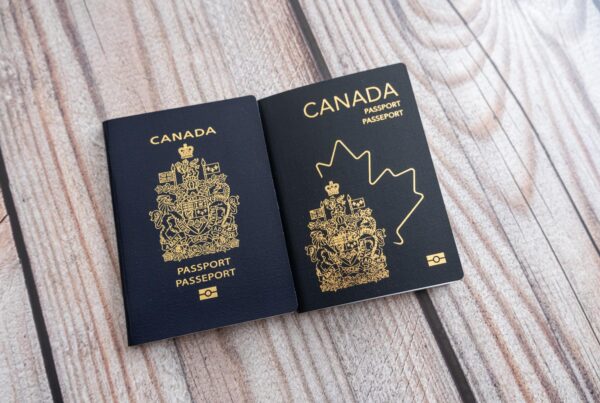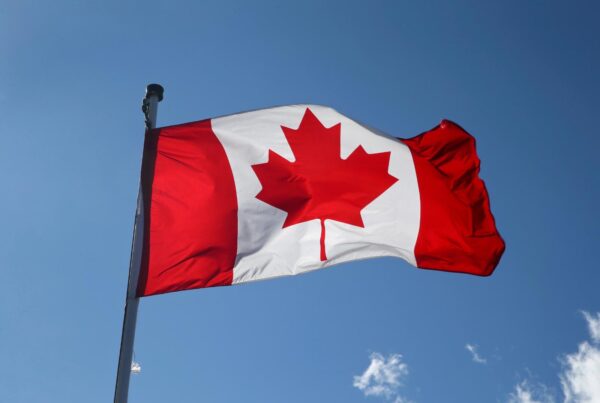British Columbia has become more available to skilled professionals from around the world. Last year, BC welcomed nearly 45,000 newcomers, and this number will likely grow as the province keeps looking for international talent. Bill 38, the International Credentials Recognition Act, is a new law that will help bring foreign skilled workers and boost the province’s economy. This law gives professionals a great chance to make their move to British Columbia.
Looking to immigrate to Canada and work in BC? The new law opens up some promising paths. Regulatory bodies must now remove barriers across 29 professions and speed up credential recognition, whatever your training background. The law also gets rid of unnecessary language tests. This matters because newcomers will need to fill at least one-third of more than one million jobs over the next decade. Express Entry stands out as the quickest and most popular route to PR in Canada for those heading to BC, with a 6-month processing time. The BC PNP Tech program has already helped over 6,000 tech workers get permanent residence since 2017.
My work as a Vancouver immigration lawyer has shown me how tough this move can be for skilled professionals. These new changes show BC’s steadfast dedication to bringing in international talent. This piece will show you the exact steps to start working in British Columbia within 90 days of arrival. You’ll learn how to direct yourself through the new credential recognition process and make the most of BC’s growing need for skilled workers.
Understanding the New Rules for Working in BC
Understanding the New Rules for Working in BC
BC has changed the game for newcomers entering the workforce. The International Credentials Recognition Act (Bill 38) passed on November 8, 2023. This new law shows BC’s steadfast dedication to bringing in international talent while fixing skill shortages in many sectors.
What Bill 38 changes for newcomers
Bill 38’s biggest breakthrough eliminates what people call the “catch-22” situation – you needed Canadian work experience to work in your field. This makes a real difference if you want to get PR in Canada and work in BC. The law stops regulatory bodies from asking for new language test results when valid ones exist. This creates a more efficient path for skilled professionals. The act also makes regulatory authorities charge international applicants the same fees as domestic ones, taking down another big hurdle for newcomers.
Why credential recognition matters
Credential recognition checks if your education, skills, and experience from other countries match Canadian standards. You need this verification to work in regulated professions in British Columbia. Skilled professionals moving to BC used to face confusing processes and big roadblocks getting their international credentials recognized. Many qualified people couldn’t use their skills to help the province’s economy. The new act fixes these issues by making regulatory authorities create fair, efficient, and clear processes to assess international credentials.
How this affects 29 regulated professions
The International Credentials Recognition Act covers 29 specific professions under 18 regulatory authorities. These include engineers, social workers, veterinarians, paramedics, early childhood educators, teachers, biologists, land surveyors, and architects. Healthcare professions have their own separate initiatives. Regulators must now make decisions quickly and tell applicants within 14 days. A superintendent of international credential recognition now watches over the whole process and can issue compliance orders or give penalties when needed.
Preparing Before You Arrive in British Columbia
Preparing Before You Arrive in British Columbia
Your success in British Columbia starts well before your flight to Canada. Good preparation can substantially cut down the time you need to start working after arrival. My experience in Vancouver shows that newcomers who prepare well find jobs much faster than those who wait until they get here.
Gathering your international credentials
The right documentation creates the foundations of a smooth transition to working in BC. You’ll need government-issued identification and proof of citizenship or landed immigrant status for everyone in your family. Beyond these simple requirements, you need complete documentation of your professional qualifications. Reach out to the regulatory authority for your profession right away – even before leaving your home country. Many authorities let you start your application while abroad. Their websites show exactly what documents you need and how to apply. Start this process early because gathering and submitting documents takes time. You might qualify for financial help through programs like the Career Paths for Skilled Immigrants program or Foreign Credential Recognition Loan Project.
Understanding language requirements
Language skills are vital for professional success in British Columbia. Jobs under NOC levels B, C, or D need English or French proficiency at Canadian Language Benchmark (CLB) 4. NOC level B jobs require language test results with a minimum CLB score of 4 across all areas. Language tests remain optional for NOC level 0 or A jobs unless you want language points, but BC PNP might ask for results. The new rules offer a big advantage – regulatory authorities can’t ask for new language test results if you’ve submitted valid ones in the last five years. This saves time and money for newcomers with recent assessments.
Knowing which documents to translate
Document translation needs special attention during preparation. Professional translators must handle all non-English documents according to specific rules. The province accepts translations from certified translators of the Society of Translators and Interpreters of British Columbia (STIBC) or member societies of the Canadian Translators, Terminologists and Interpreters Council (CTTIC). A BC Notary Public who knows both languages can also translate your documents. The original document and translation must be notarized together – authorities won’t accept unnotarized translations. Some documents don’t need translation, including diplomas from Canadian schools in Latin or Greek and official bilingual English-French documents from Canadian government agencies.
Navigating the Credential Recognition Process
Getting your credentials recognized needs careful planning after you prepare your documents. The International Credential Evaluation Service (ICES), BC’s provincially mandated evaluation service, provides different assessment options that match your needs. ICES gives simple evaluations to help with general employment and complete evaluations for professional occupations or academic admissions. Each option serves a specific purpose.
How to apply for assessment
You should first understand which type of evaluation fits your situation. Regulatory authorities in BC must now clearly show their international credential recognition process online. This new rule solves an old problem where 69% of internationally trained professionals found it hard to communicate with regulatory authorities. Many institutions have created strategic collaborations that let you submit documents electronically, which speeds up the process by a lot. You should check if your educational institution has these arrangements before you submit your application.
Expected timelines and communication standards
The new law requires regulatory authorities to make decisions within reasonable timeframes. They must notify applicants in writing within 14 days after reaching a decision. This fixes a major issue that 77% of internationally trained professionals faced with long waiting times. You can now expect clearer communication standards when you plan your move to British Columbia. Regulatory bodies must also submit annual reports to the Superintendent by April 1 each year. This creates accountability to maintain these standards.
Avoiding common delays and mistakes
My experience helping clients work in BC shows that underestimating processing times often disrupts immigration plans. You should begin your credential evaluation process early—ideally months before application deadlines. Make sure your educational institutions send official transcripts and certificates directly. Applications that are not complete cause most delays. In fact, verifying document authenticity remains crucial for assessment integrity, though fraud happens in less than 2% of applications. Let Joshua Slayen help you move to BC quickly by guiding you through these potential challenges.
Getting Hired Within 90 Days of Arrival
Getting Hired Within 90 Days of Arrival
Your job hunt starts right after you land in British Columbia with your assessed credentials. BC employers look for international workers, particularly when they can’t find local talent.
Finding employers open to international talent
WorkBC’s job board helps you find opportunities aimed at newcomers. The Immigrant Employment Council of BC provides tools and resources that connect international workers with the right positions. Many employers value international qualifications just like Canadian credentials, especially after assessment through the International Credential Evaluation Service.
Using BC PNP and Express Entry to your advantage
The BC Provincial Nominee Program (BC PNP) gives workers in BC a path to permanent residence. This program has two main routes with categories based on National Occupational Classification skill level, job type, or international student status. Express Entry British Columbia (EEBC) speeds up both your BC PNP application and permanent residence process. Joshua Slayen can help you move to BC quickly by guiding you through these options.
How local organizations can support your job search
Immigrant settlement agencies build bridges between newcomers and employers. MOSAIC and ISSofBC give you job search tools like resume help, job hunting support, and interview prep. The Newcomer Employment Program (NEP) matches you with industry professionals and provides real work experience.
The role of post-arrival orientation programs
The BC Newcomer Services Program (BC NSP) helps you settle in through job orientation sessions, networking workshops, and workplace rights information. Work permit holders, study permit holders, naturalized Canadian citizens with language barriers, refugee claimants, and BC Provincial Nominees can all use this program. You’ll learn about settlement resources, credit management, income taxes, workers’ rights, and policy updates through post-arrival seminars.
How We Help
British Columbia has reached a turning point for skilled international professionals looking for new chances. The International Credentials Recognition Act has changed how our province welcomes global talent. This law breaks down old barriers that kept qualified people from working in their professions after arriving here. The removal of the “catch-22” rule that demanded Canadian experience has opened doors that were shut to newcomers.
My work as an immigration lawyer in Vancouver has shown me how skilled professionals struggled with credential recognition. The future looks much brighter now. Regulatory decisions must come within 14 days, which brings much-needed clarity. The ban on unnecessary language testing removes another big roadblock that held back many careers.
Getting work in British Columbia follows a simpler path now. Good preparation remains the life-blood of success for newcomers. People who collect their credentials, know the language requirements, and start assessment before arrival have better chances of finding work in their first 90 days. The BC PNP, Express Entry, and settlement agencies are great support systems that help bridge the gap between arrival and employment.
Our province needs international talent more than ever. We must fill over one million jobs in the next decade, and newcomers will take up at least one-third of these spots. This law comes at the perfect time and lines up with what the province needs economically while creating chances for skilled professionals worldwide. The government has shown its steadfast dedication to building paths instead of barriers.
The world for internationally trained professionals in British Columbia has changed completely. Some challenges will remain, but the system no longer stops qualified people from using their skills. The province truly welcomes international talent with processes built for success. Through Express Entry, the BC PNP Tech stream, or other immigration paths, building a career in this beautiful province is more available than ever. Getting a job within 90 days of arrival is now a real goal rather than just wishful thinking.








